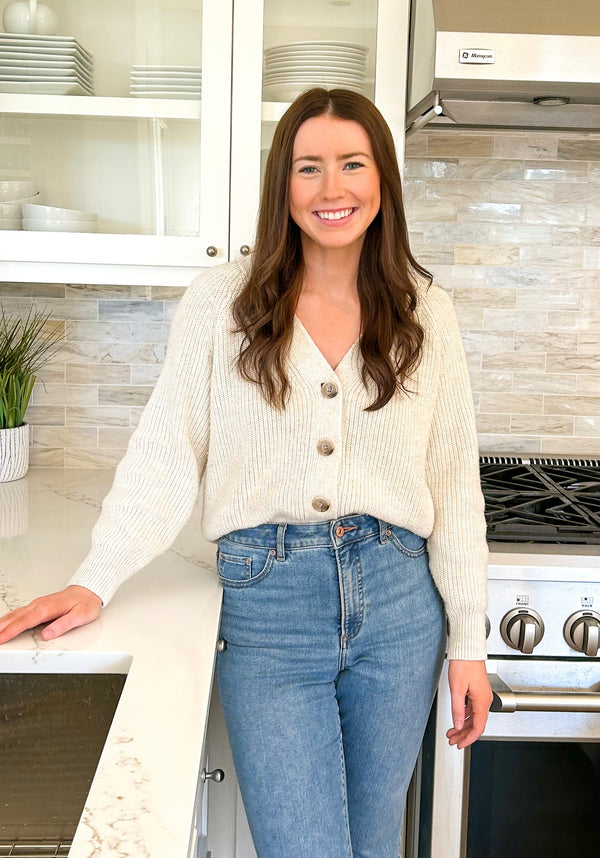The Constipation and Anxiety Link
share this article

Constipation and anxiety can feel like two completely separate struggles, but they often go hand in hand in kids. If your little one is dealing with both, there may be more of a connection than you think.
In fact, one study showed that nearly 41% of kids with anxiety also experience some type of gut issue, compared to just 6% of those without anxiety (1).
Let’s unpack how these two issues are linked and what you can do to help.
Understanding the Constipation-Anxiety Connection
Both constipation and anxiety are incredibly common in kids. Constipation affects up to 30% of kids, while anxiety occurs in 1 in 12 school-aged kids (2,3).
Constipation is often what’s called a functional disorder - there is no physical blockage or disease, but the body isn’t working quite right. It can be triggered or worsened by stress, emotions, or environmental factors.
This is why anxiety can lead to constipation: when a kid feels stressed or overwhelmed, those emotions can change how their gut works and make it harder to poop regularly or comfortably.
On the flip side, research shows that kids who struggle with constipation are more likely to show emotional and behavioral symptoms (4). This means that constipation can sometimes contribute to feelings of anxiety, frustration, or sadness, creating a cycle that affects both their body and mind.
These issues can share root causes, like poor nutrition or disrupted routines, or one may trigger the other in the cycle.
Signs Your Kid Might Be in a Constipation-Anxiety Cycle
Constipation and anxiety can both be tough to spot especially when your kid doesn’t know how to describe what they’re feeling.
Here are some common signs:
-
Withholding poop or fear around using the bathroom
-
Complaints of tummy aches or low energy
-
Bathroom accidents even after potty training
-
Sweating, fast heartbeat, or tantrums during potty time
-
Big emotional reactions to pooping or toileting routines
The Gut-Brain Connection
The gut and brain are constantly communicating through something called the gut-brain axis. This pathway helps explain why emotional stress can show up as physical symptoms (like constipation) and why gut problems can worsen mood or anxiety (2).
When a kid is chronically anxious, it can change how the muscles in the gut work. This can make it harder for the body to move poop through smoothly, which only adds to the stress. It becomes a loop: stress leads to constipation, which leads to more stress, and so on.
What You Can Do to Support Constipation & Anxiety
1. Support Gut Health
Supporting gut health can improve both digestion and mood, which is a great starting point if you're noticing signs of constipation or anxiety.
Here’s where to start:
-
Increase fiber intake to help soften poop and strengthen the gut lining. Introduce whole foods like fruits, veggies, whole grains, beans, and legumes to slowly increase your kiddo’s fiber intake.
-
Add prebiotics to feed the good bacteria in the gut. These are naturally found in oats, bananas, garlic, peas, and beans or you can incorporate a convenient supplement like Growing Up Prebiotics - a tasteless and textureless powder to seamlessly improve your kiddo’s gut health.
-
Include probiotics, which are the good bacteria themselves. Foods like yogurt, kefir, and certain fermented foods can all help gently support digestion and mood. Some early research shows probiotics may help reduce anxiety-like symptoms in kids (4).
2. Teach Coping Skills for Stress
Anxious kids may withhold poop or avoid the bathroom because they don’t know how to cope with uncomfortable feelings. Teaching simple tools like deep breathing, stretching, listening to music, or using a stress ball can help them feel more in control.
3. Establish Routines
Consistent routines can help bring predictability to your kid’s life which can help both digestion and anxiety.
Try to:
-
Serve meals and snacks at regular times
-
Encourage bathroom time after meals
- Maintain a consistent sleep schedule
4. Normalize Body Talk & Potty Education
Kids may not always know how to talk about their feelings or bathroom needs. Start the conversation by asking simple questions like:
-
“How does your tummy feel today?”
-
“Is it ever hard or scary to poop at school?”
-
“Do you feel better or worse after you go?”
Normalizing these conversations makes it easier for your kiddo to ask for help or recognize when something feels off.
5. Track Patterns
Keep a simple log of your kid’s poops and emotional ups and downs. You might start to see patterns, like missed poops on school days or tummy aches after certain situations. Tracking helps you figure out what’s working and what needs more support.
Plus, openly tracking these things with your kid can help them normalize communication about bowel movements and emotions, which can feel uncomfortable or unfamiliar at first.
6. Speak to a Professional
If things feel stuck, you're not alone. Talk to your kiddos’ pediatrician, a GI specialist, therapist, or even a pelvic floor physical therapist. Many kids benefit from a team approach when poop and emotions are both involved.
Summary
Constipation and anxiety are often related and create a cycle that can be hard to break. The most effective approach is to support your kid's digestion, emotional regulation, and daily routines at the same time for long term symptom relief.
















